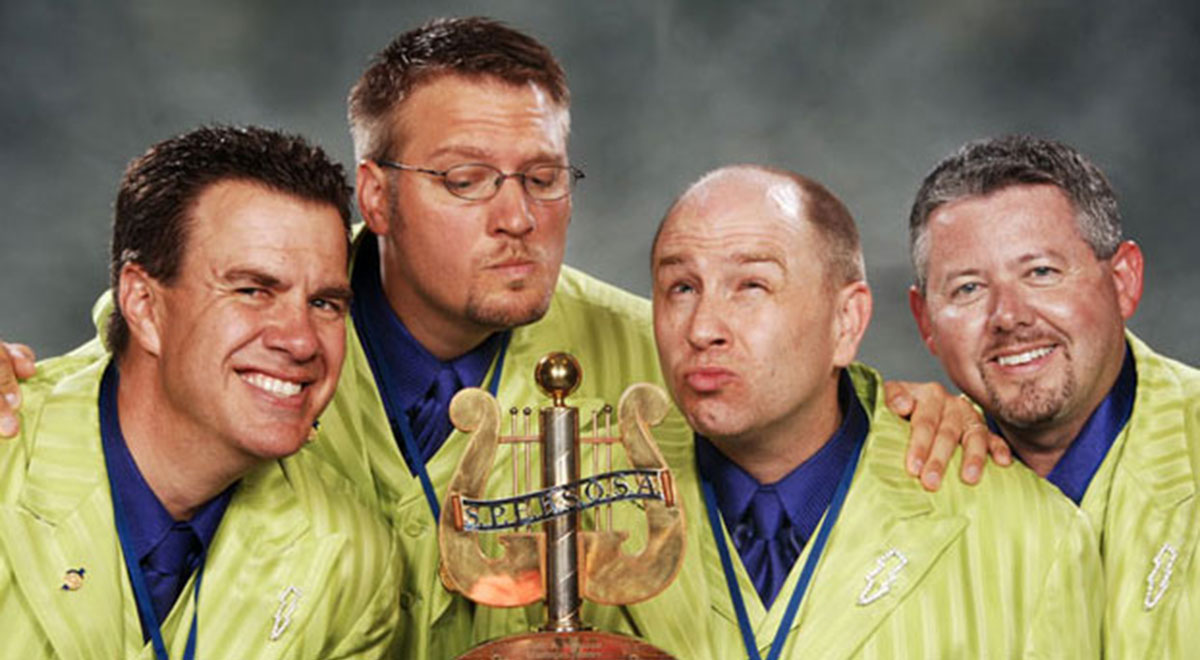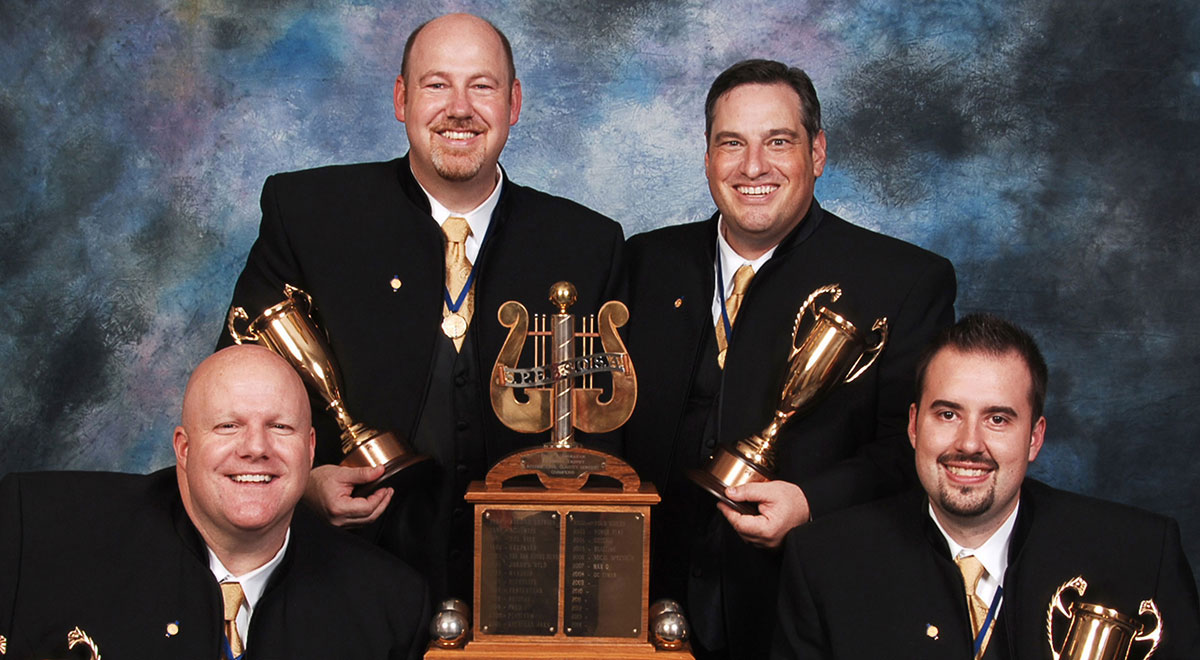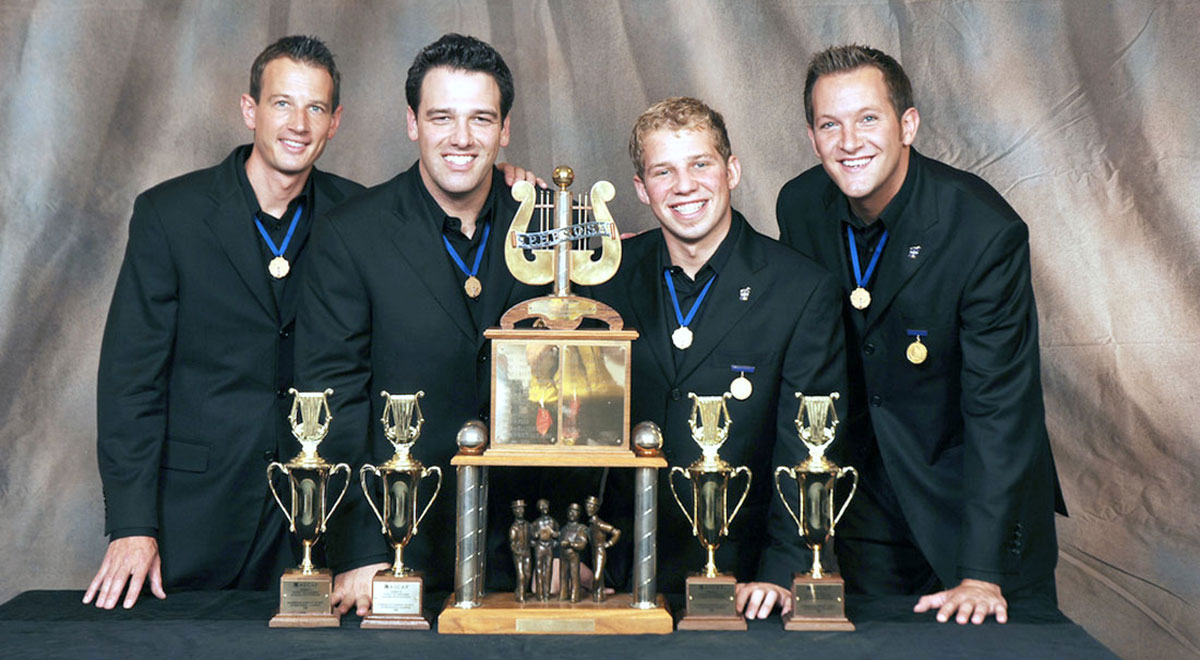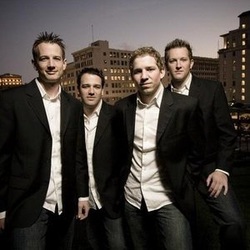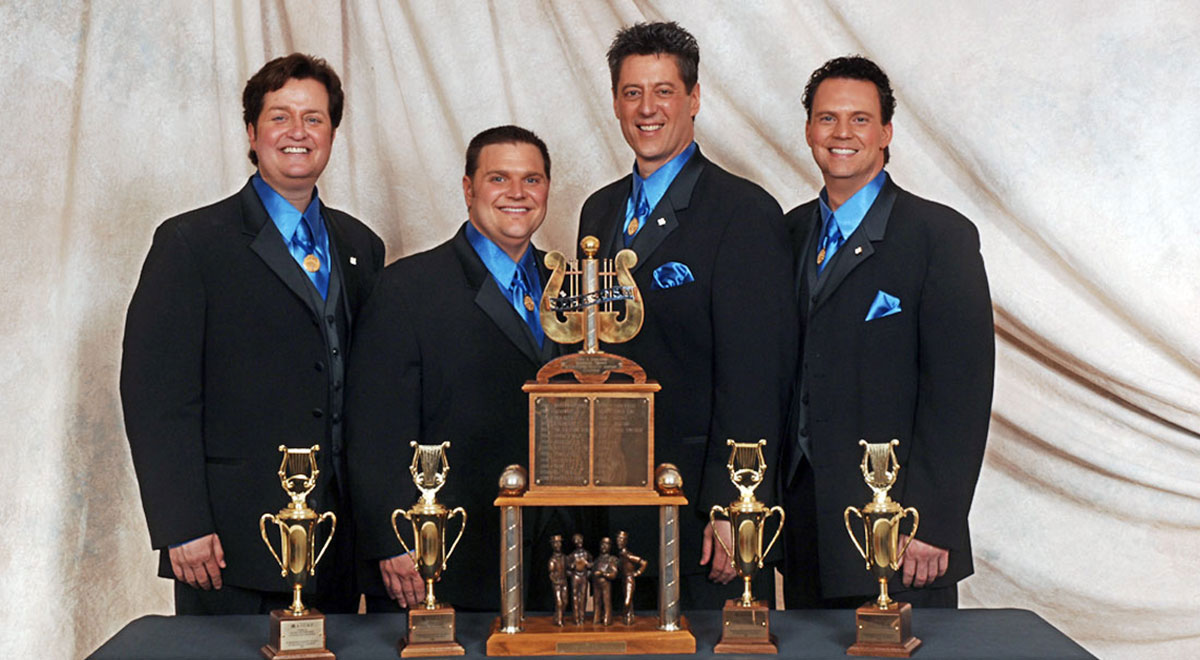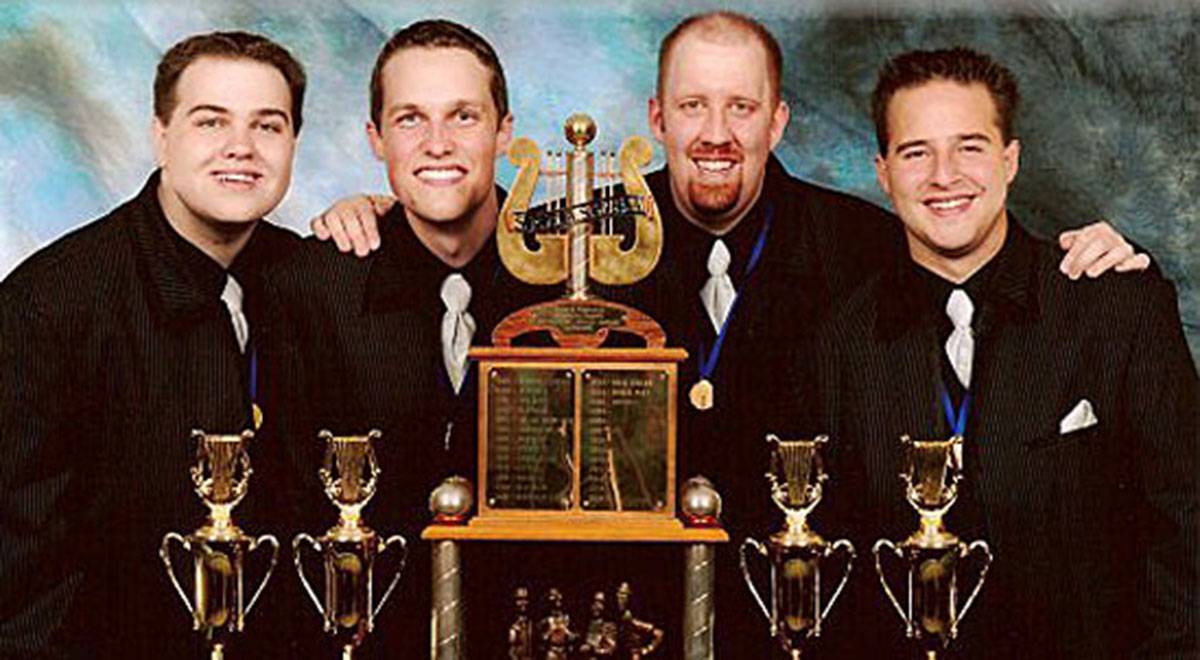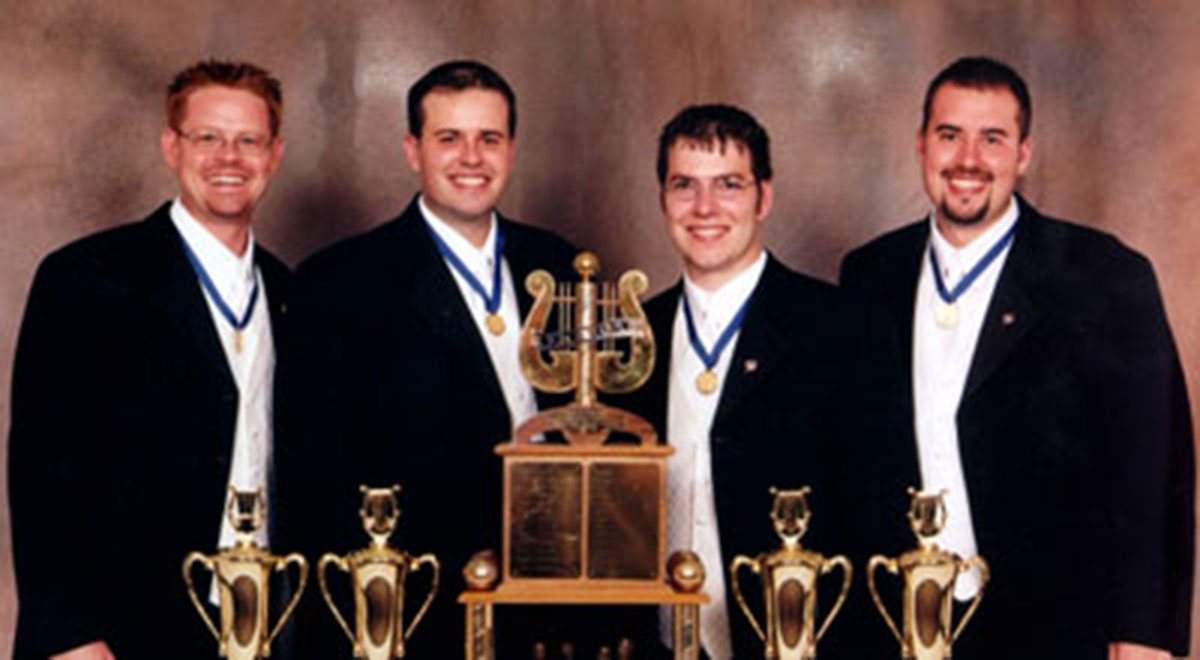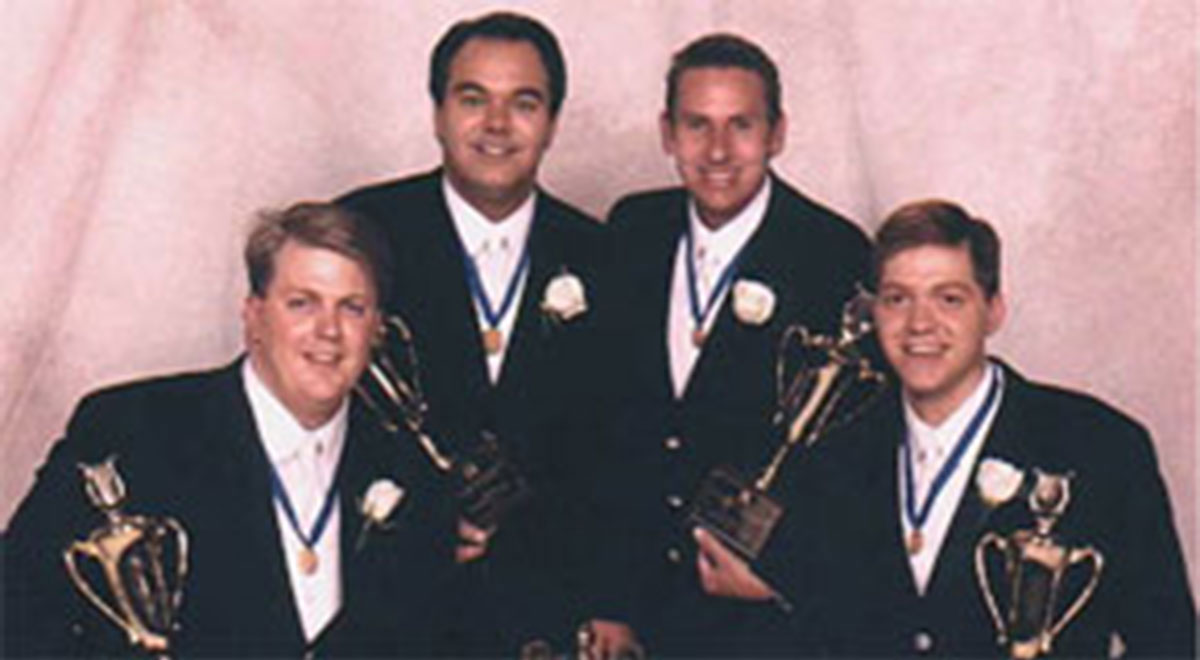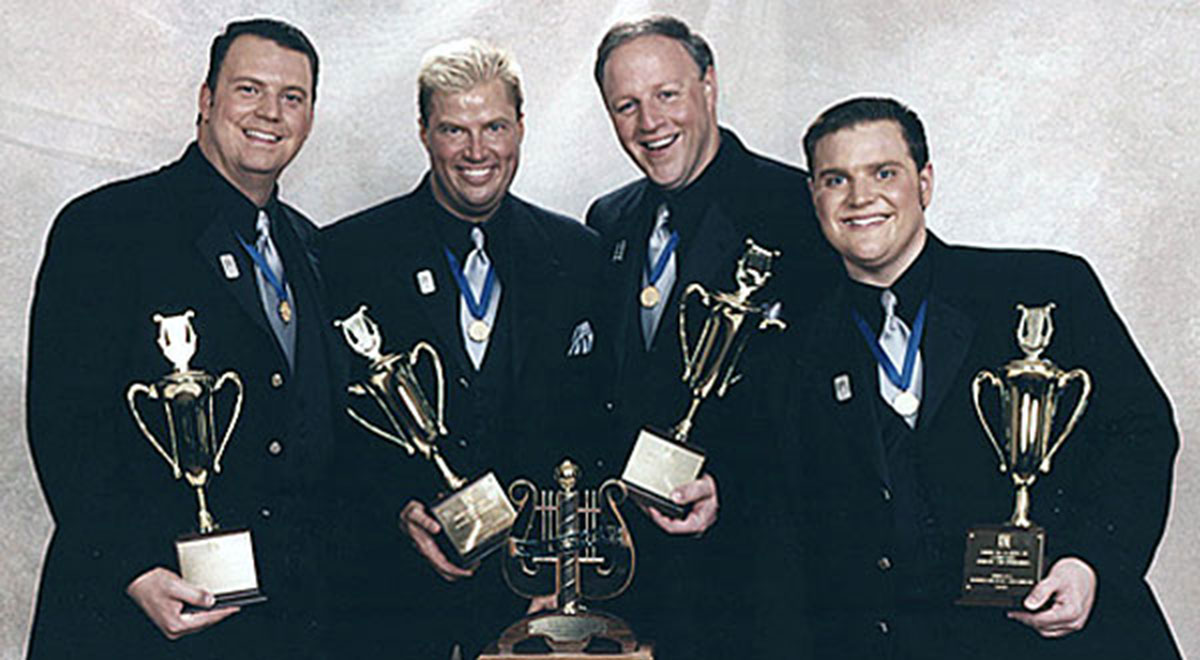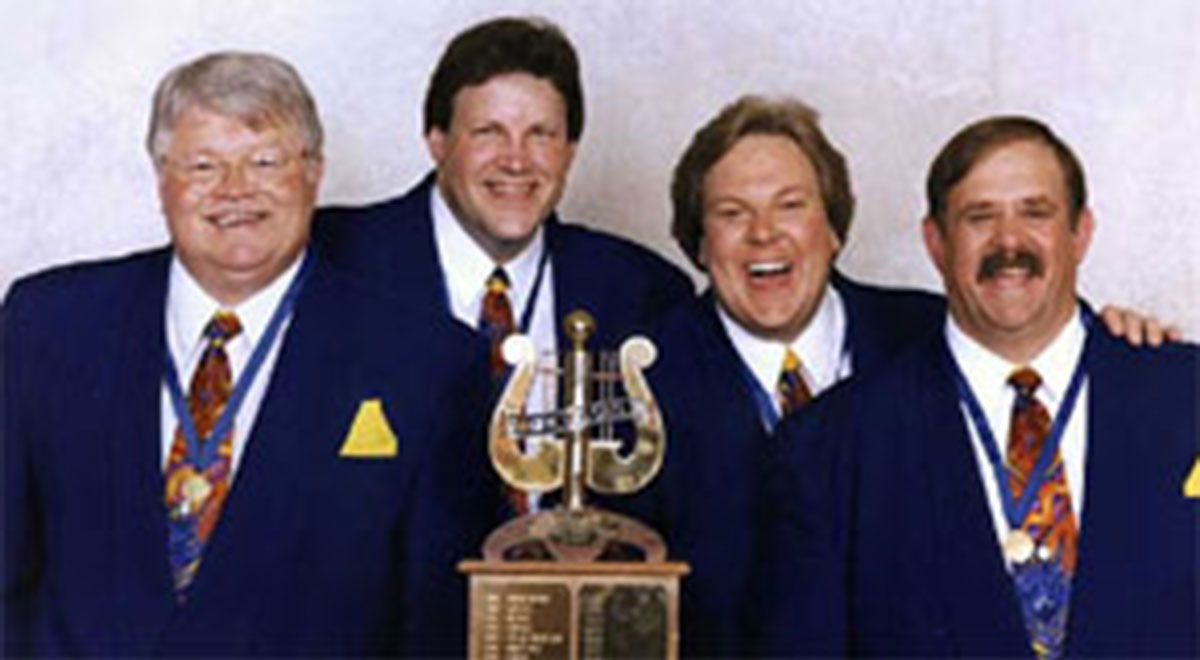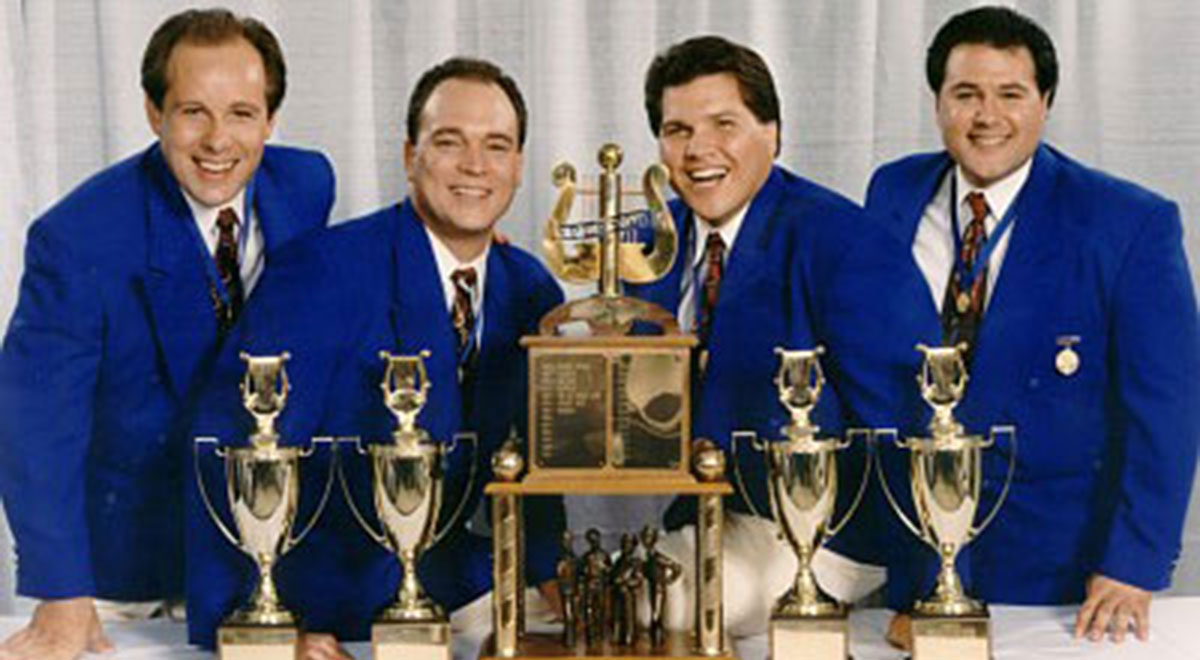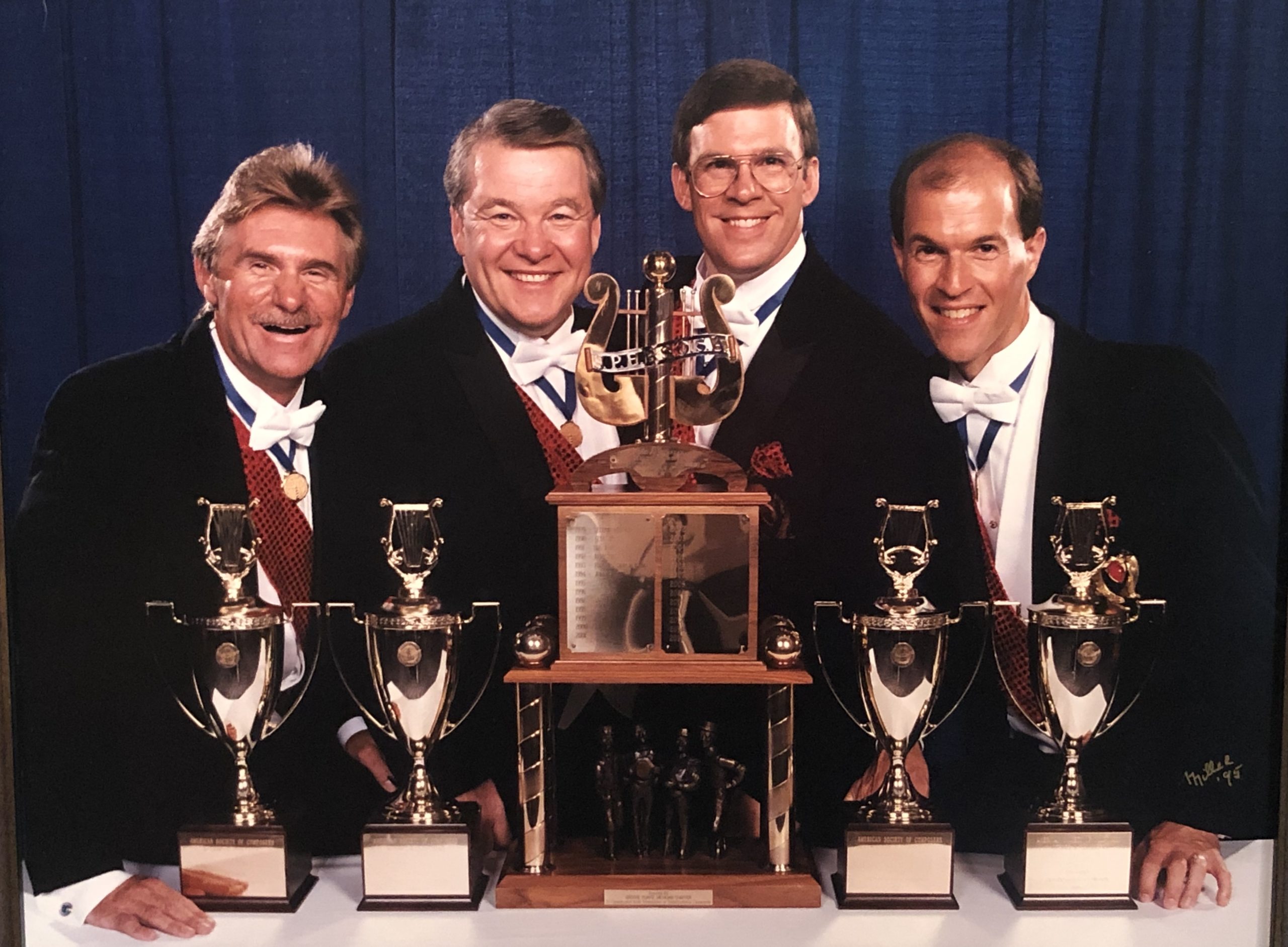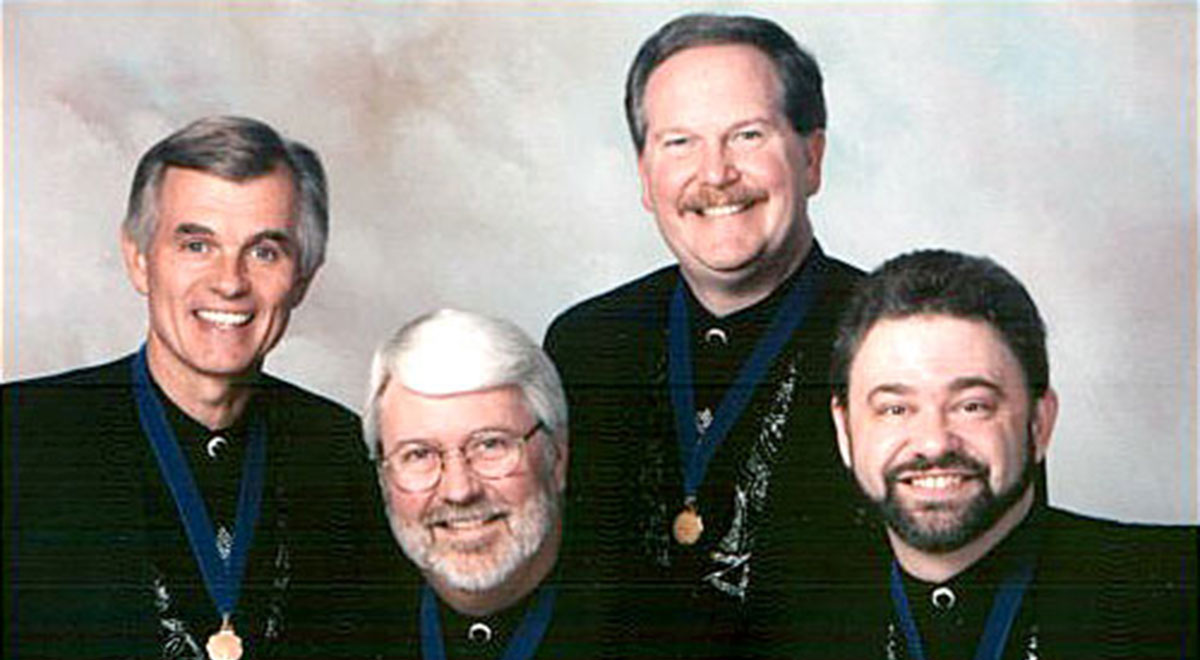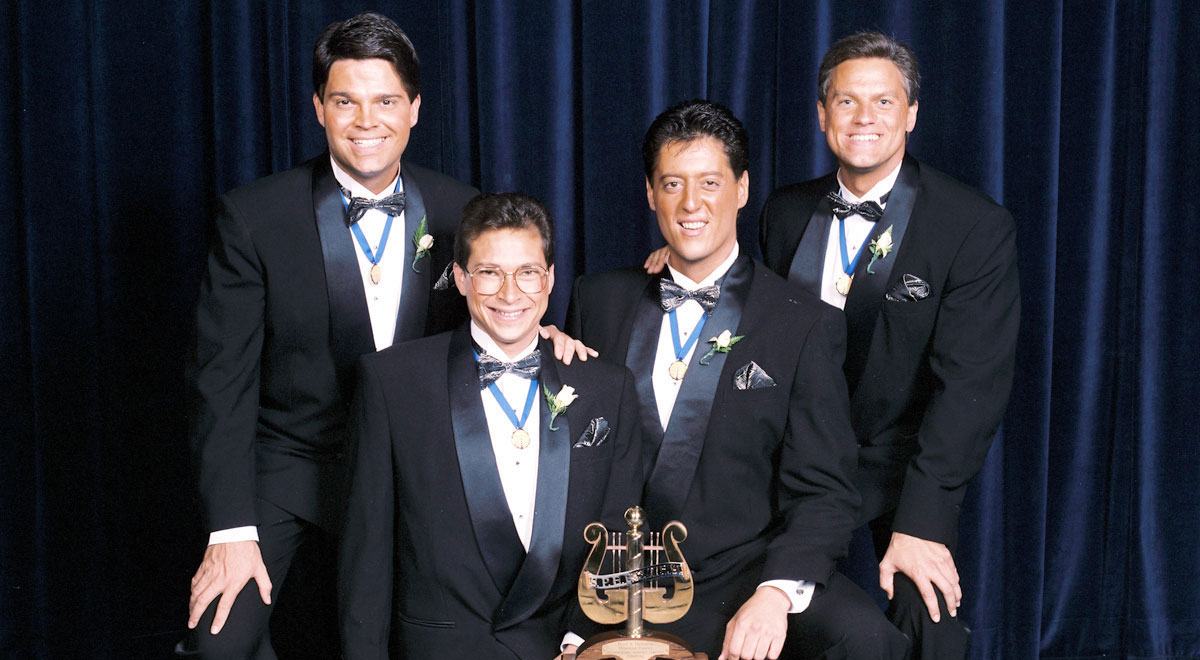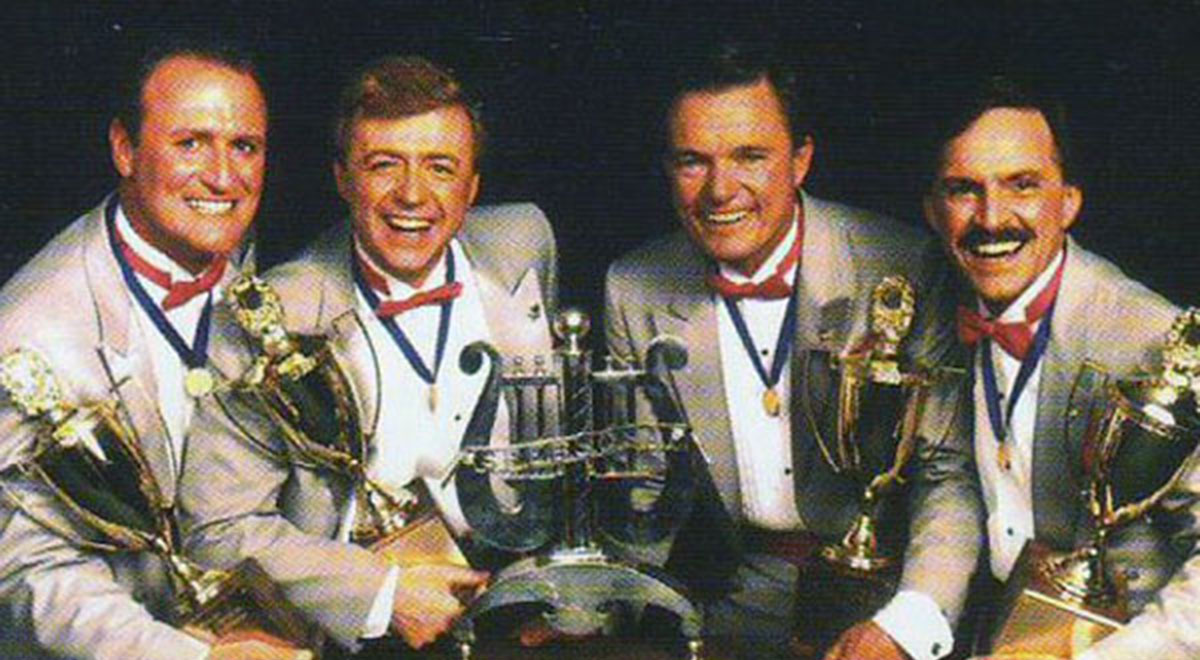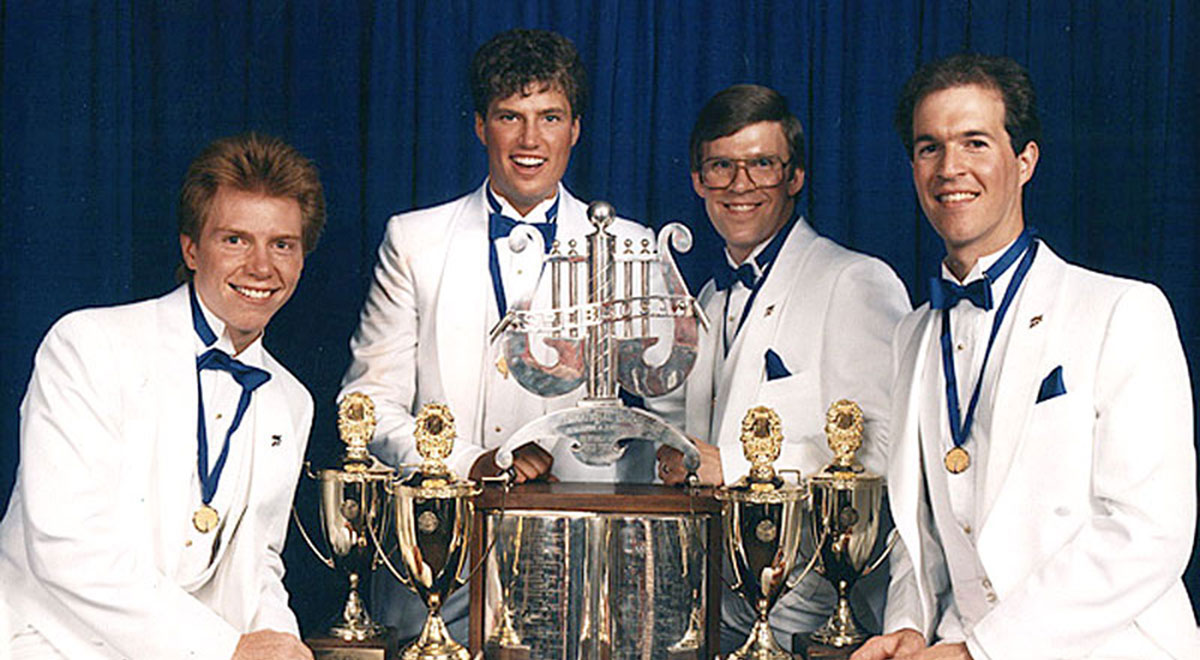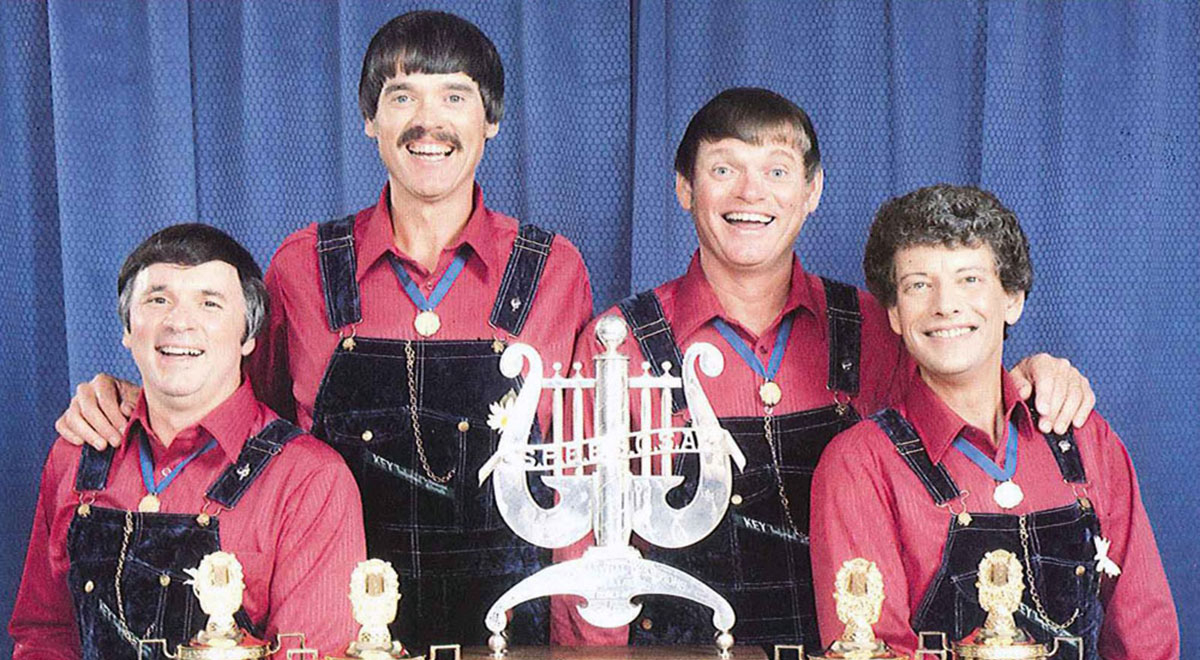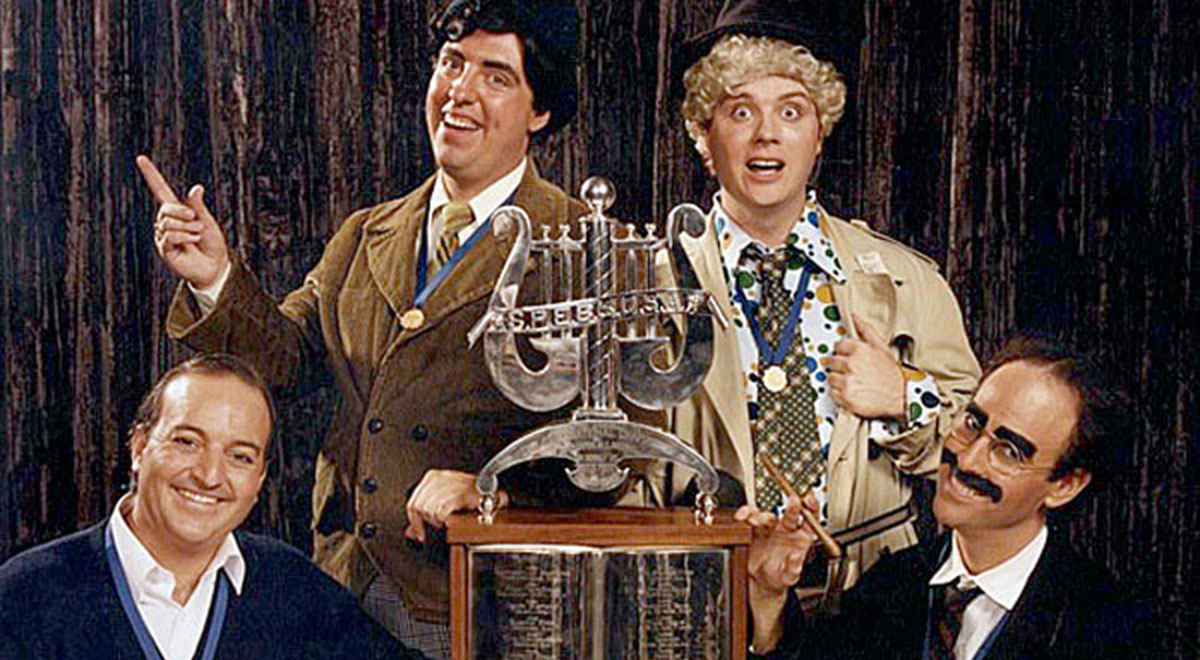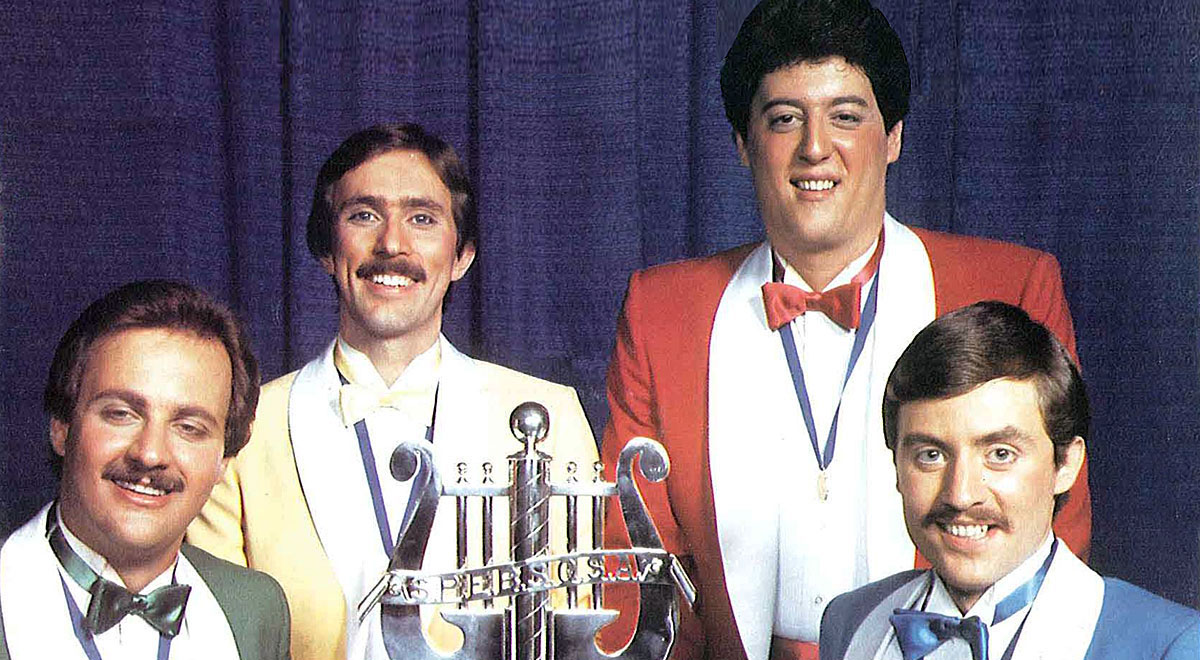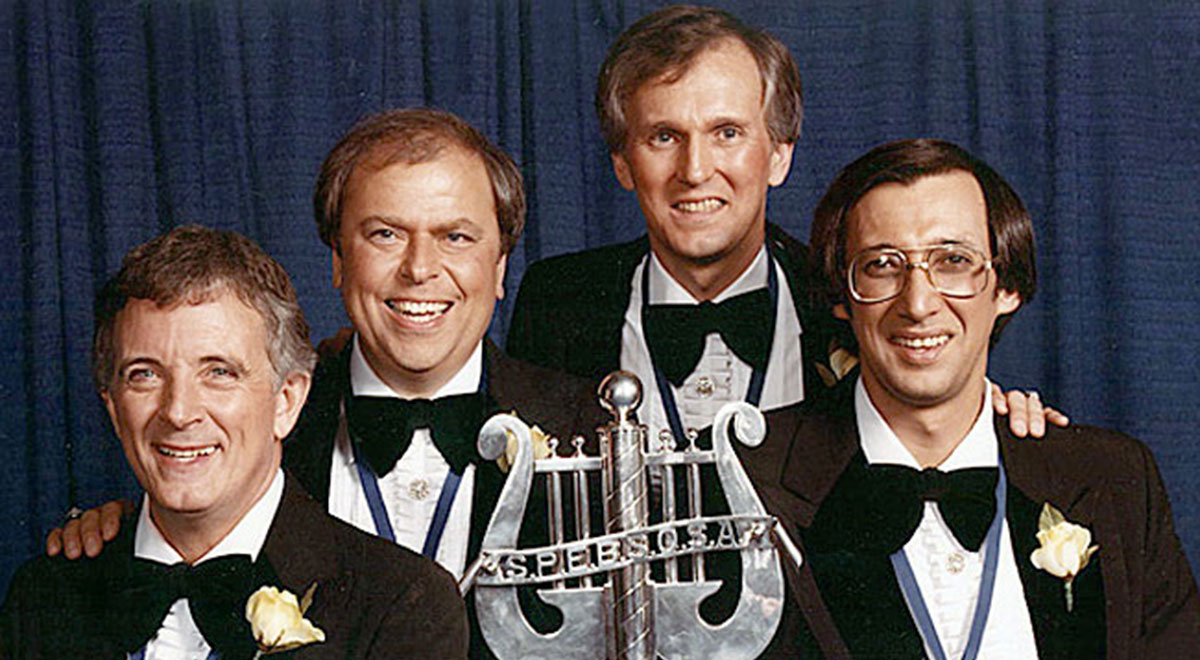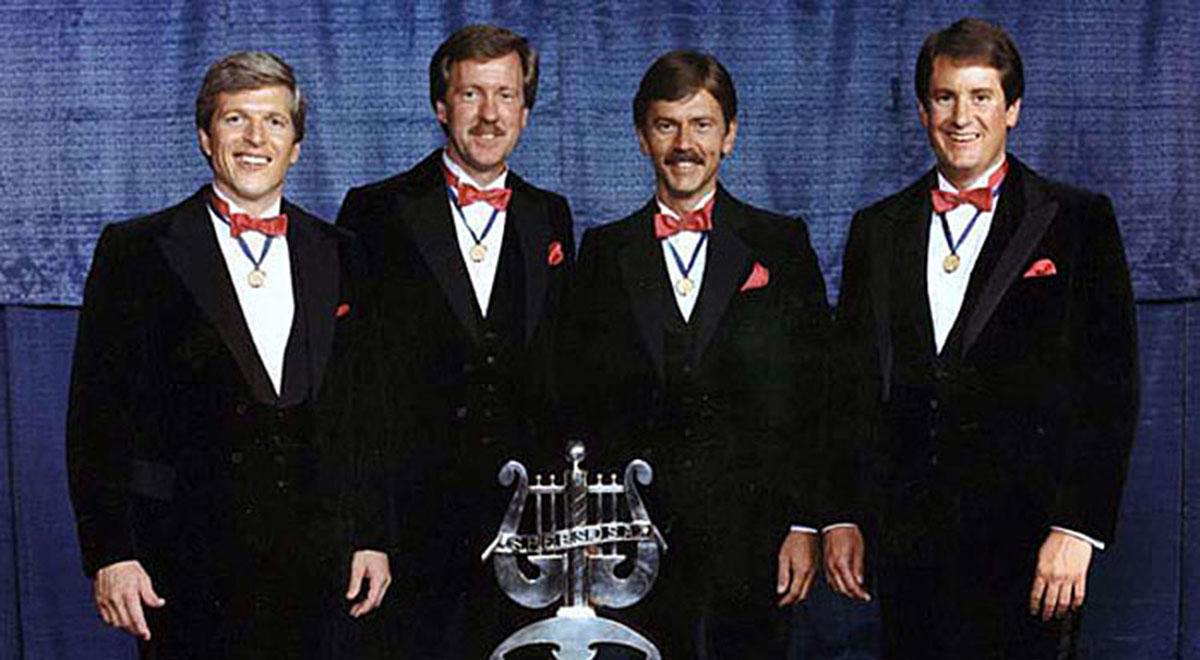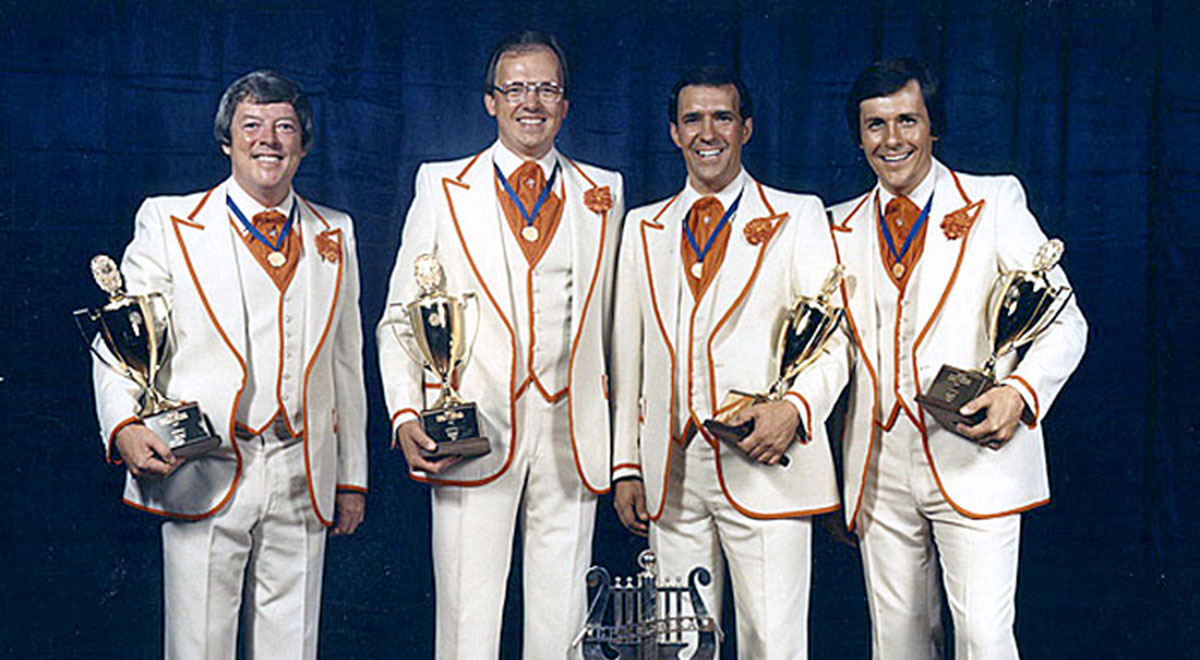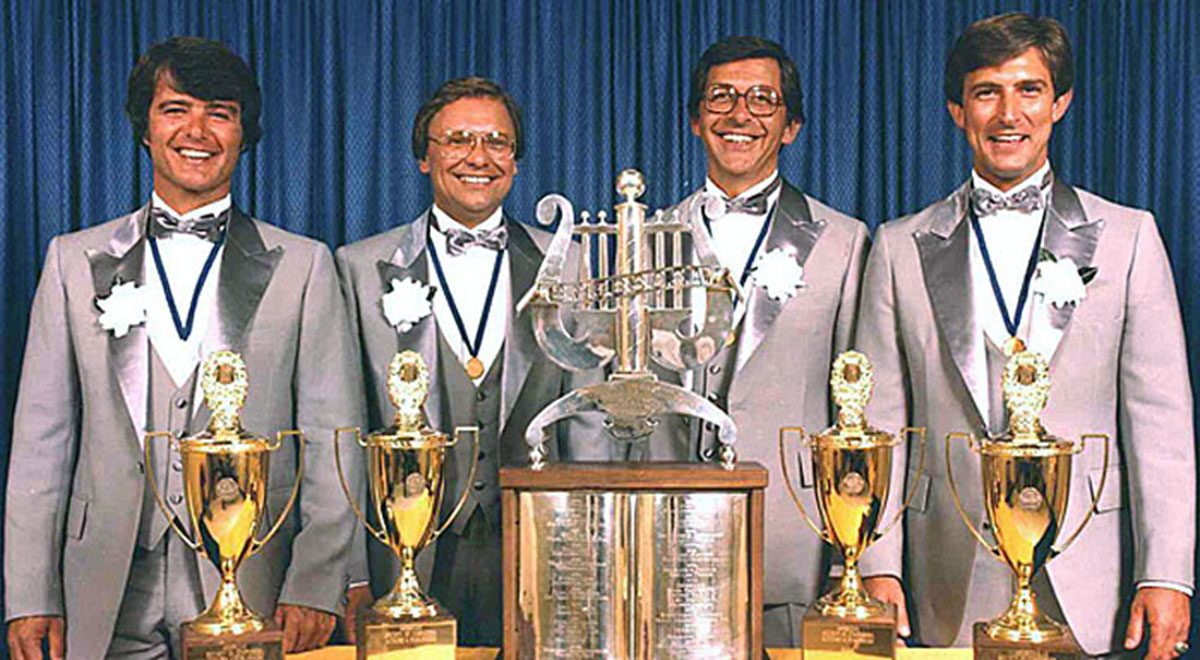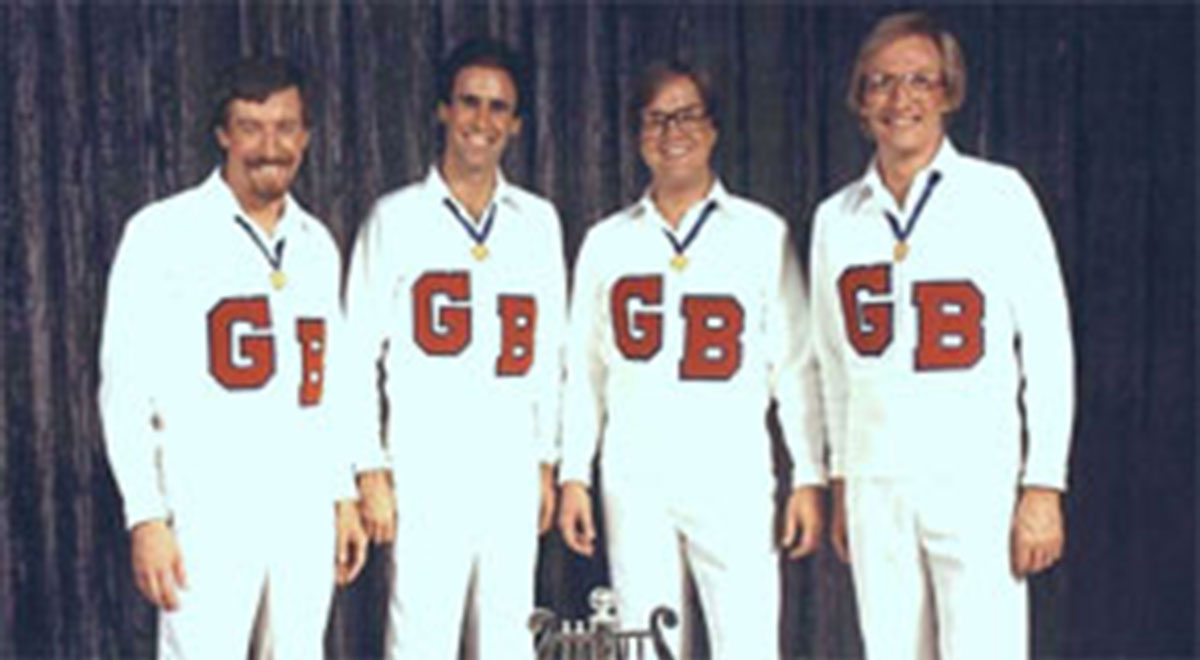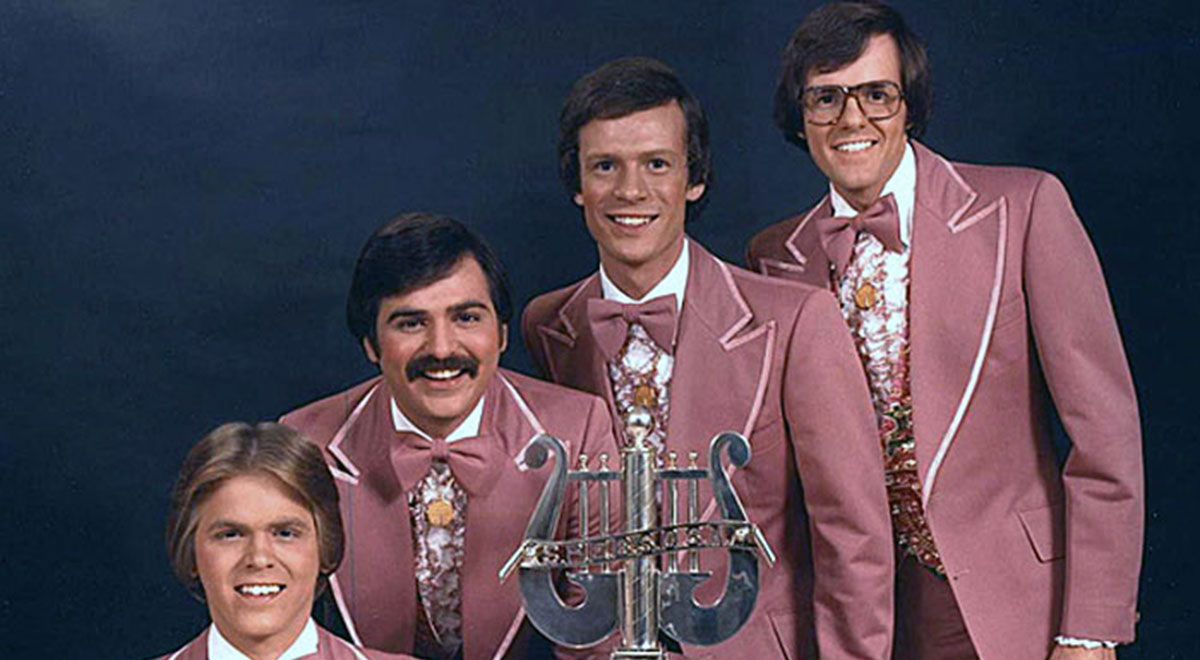Tenor: Todd Wilson
Lead: Rick Middaugh
Bass: Jeff Oxley
Bari: Jason January
Acoustix formed in January of 1990, and in a very short time realized that the blending of their vocal talents produced a sound that has eluded many performers.
The Texas foursome skyrocketed straight up the competition ladder. In a record-setting six months, Todd Wilson (tenor),Rick Middaugh (lead), Jason January (baritone) and Jeff Oxley (bass), won on their first attempt.
This dynamic foursome has been electrifying audiences around the world for over 20 years. ACOUSTIX has appeared on CNN, NBC’s “Today Show,” TNN’s “The Statler Brothers Show,” and two PBS specials. At the turn of the 21st century, ACOUSTIX performed for a global audience of 175 million viewers on “ABC 2000,” hosted by Peter Jennings.
In 1998, Joel T. Rutherford moved to Texas from Toronto Canada to replace Jeff Oxley.
Their most recent national television appearances included performing the Star Spangled Banner for game five of the 2011 NBA Finals, and game six of the 2006 NBA Finals. ACOUSTIX has shared the stage with many talented acts, including The Mormon Tabernacle Choir, LeAnn Rimes, The Dixie Chicks, The King’s Singers, Mitch Miller, Isaac Stern, Pete Fountain, Victor Borge, The Four Freshmen, The Gatlins, The Canadian Brass, The Dallas Wind Symphony, and the Atlanta Symphony Orchestra.
ACOUSTIX recently contributed their talents to two new Bill Gaither Homecoming video projects, Amazing Grace, released in August of 2007 and Rock of Ages, released in April of 2008. Some of the other artists involved included Randy Owen, the Oak Ridge Boys, Ernie Haase & Signature Sound, the Gaither Vocal Band, the Isaacs and Brenda Lee.
The quartet has made close to 1000 appearances in 47 states of the USA and six provinces of Canada. Bookings outside North America have taken the quartet to Japan, Great Britain, Austria, Czechoslovakia, Hungary, Germany, Australia, Saudi Arabia and Switzerland. Traveling to well over 300 cities around the globe, from Carnegie Hall in New York, Roy Thompson Hall in Toronto to Muse Arc Hall in Tokyo, ACOUSTIX has performed in some of the greatest concert venues in the world.
ACOUSTIX predominantly a cappella repertoire showcases a wide variety of musical styles including Vocal Jazz, Gospel, Sacred, Doo-Wop, Contemporary Christian, Patriotic, Inspirational music and even a bit of Barbershop Harmony. From a standard like “Bye-Bye Blackbird” to “I Get Around” from the Beach Boys, to a collection of hits from Simon & Garfunkel, to John Philip Sousa’s “Stars & Stripes Forever,” ACOUSTIX sings a broad variety of musical selections that appeal to audiences of all ages.
The quartet has collaborated with some of the greatest vocal arrangers in the business, including Gene Puerling, Dr. Kirby Shaw and Mervyn Warren, to name a few.
ACOUSTIX has produced five CD projects since 1991 and appeared on another 21 audio and video releases. Their latest disc, “O Worship The King” continues their tradition of exploring different musical genres. Two of their releases, “Cool Yule” and “Jazz, Jazz, Jazz,” have garnered a combined three nominations for a CARA (Contemporary A Cappella Recording Award) in three different categories. Cuts from their first two discs “Stars & Stripes” and “The New Science of Sound” have been included in American Airlines “in-flight” audio programming.
Todd Wilson, Jason January, Rick Middaugh, and Joel T. Rutherford share a combined 100+ years of stage and studio vocal experience. Their emphasis on ENTERTAINMENT has helped create a loyal group of fans. Some of these folks have been known to fly or drive 1000+ miles to see ACOUSTIX perform “live.” In 2000, the quartet received an A cappella Community Award for Favorite Barbershop Group from the Contemporary A cappella Society of America.
